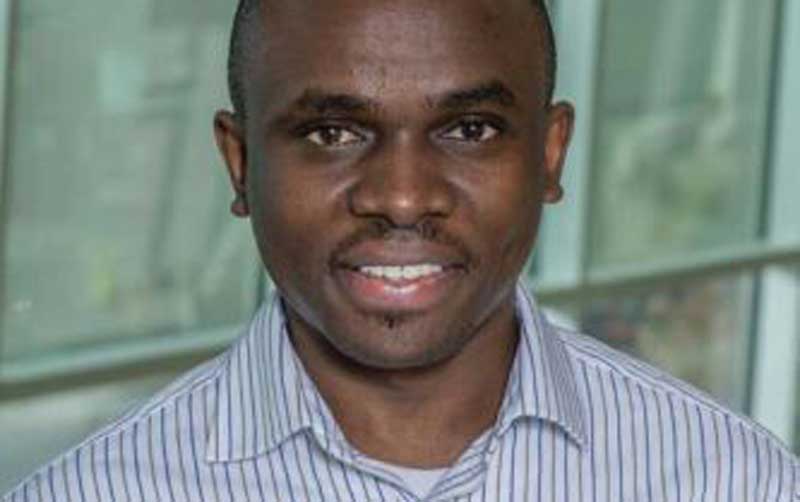
Benson Edagwais an assistant professor in the Department of Pharmacology and Experimental Neuroscience at the University of Nebraska Medical Centre where he is engaged in mentorship of graduate students and post-doctoral fellows. He speaks to Hashtag about his collaborative research efforts towards the development of better treatments against HIV and other chronic infections.
What are you doing about HIV/AIDs?
My experiences with patients living with HIV/AIDS made me re-examine my career goals and sparked my strong interest in HIV therapeutics. My research topic was on Long-Acting Slow Effective Release Antiretroviral Therapy (Laser Art).
The aim of my research is to create sequential long-acting slow-effective release antiviral therapy to facilitate HIV and hepatitis B prevention and treatment strategies. This work has now led to the first cure of HIV in an animal model of human infection and could provide lifesaving cures for millions of human patients around the world.
We are also developing imaging technologies that would allow us to visualise disease spread and distribution of medicines into different parts of the body without the need for performing surgical procedures. Such technologies will enable the development of better treatments.
What were the challenges you encountered during the research?
My ideas were rejected since I was proposing to do the opposite of what many had been doing in the field for decades. I persisted and reduced them into experiments. To make the long story short, the ideas are now a foundation of our research program and are a part of the first cure of HIV infection in an animal model of the disease. I also hold 13 US patent applications on the same ideas.
Compared to ARVs, how effective is Laser Art?
While regular ARVs have been successful in controlling HIV replication, the virus is able to hide in tissues and cells where most of these medicines have limited access. Laser Art is designed to deliver effective amounts of medicines into inaccessible parts of the body. It also simplifies medicine administrations and as such reduces viral transmission, prevent new infections, and limit the emergence of viral drug resistance and systemic toxicities/side effects.
For instance, regular ARVs require patients to take 365 doses a year. Laser Art will enable two doses or a single dose a year.
Perhaps of most significance is our collaborative work is demonstrating the first complete elimination of HIV-1 in a humanised mouse model of the disease using a combination of Laser Art and gene editing technologies.
What can the Kenyan universities learn from western universities?
We need continuous investment in research and development as theoretical knowledge-based learning alone will not solve our problems. We have some of the best minds at our local universities, who need support from the government to promote innovation and economic growth.
What sparked your interest in medicinal chemistry?
After completing my high school studies at Mbale High School, I enrolled in an undergraduate degree in chemistry at Moi University, Chepkoilel Campus (currently University of Eldoret) in 2005 and later a Masters in chemistry from the same university.
As I was finalising my Masters' coursework, one of my lecturers, who is also now my mentor, Prof Samuel Lutta encouraged me to apply for a PhD programme abroad. And that is how I ended up at Louisiana State University (LSU) in the United States.
My interest in medicinal chemistry had begun when I was an undergraduate student, but unfortunately, there was limited scientific research at our local institutions. Joining LSU was one of the biggest turning points in my training. Not only did LSU fund my PhD studies, but I was also afforded an opportunity to train in a collaborative multi-cultural environment with state-of-the-art laboratory facilities.
What does medicinal chemistry entail and how important is it?
Medicinal chemistry encompasses development of new medicines that improve and eventually save lives. It is a field that merges many scientific disciplines such as biological and pharmaceutical sciences.
What was your experience studying in the US?
There are major differences between the programs in the US and the Kenyan ones. I found that the ones abroad offer high-quality graduate-level training to students that prepares them for life beyond college. There is also a lot of investment in research.
Some of the courses, like the one you studied are being scrapped because of their lack of competitiveness in the market. How do you feel about this?
Change is good, but we need to ask ourselves what have we done or are doing to promote and/or strengthen teaching, research and development in our local universities. There are many challenges that could be transformed into opportunities to provide local solutions and create jobs. Scrapping off the courses alone will not solve our problems.
The good news is that we have competent and qualified faculty members at our local institutions, who require proper tools to improve the quality of education offered at our universities.
 The Standard Group Plc is a multi-media organization with investments in media
platforms spanning newspaper print
operations, television, radio broadcasting, digital and online services. The
Standard Group is recognized as a
leading multi-media house in Kenya with a key influence in matters of national
and international interest.
The Standard Group Plc is a multi-media organization with investments in media
platforms spanning newspaper print
operations, television, radio broadcasting, digital and online services. The
Standard Group is recognized as a
leading multi-media house in Kenya with a key influence in matters of national
and international interest.











